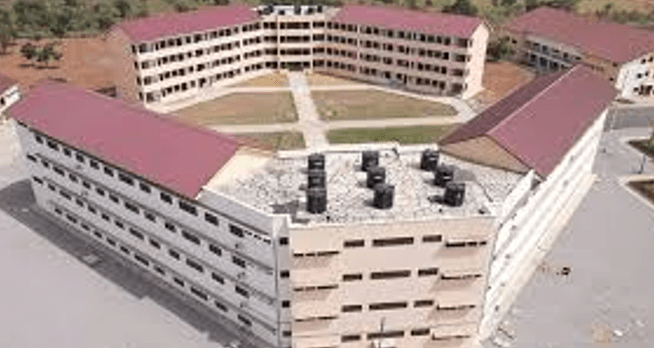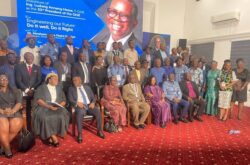By Samuel SAM
In the heart of the quiet rural community of Kpasenkpe in northern Ghana, a transformative change is underway. For decades, the lack of access to education left many young girls with limited options, often pushing them to migrate to cities in search of menial jobs, only to face exploitation and missed opportunities. Today, the newly established Kpasenkpe STEM Senior High School near Walewale is changing that narrative – providing hope and opportunity.
A new beginning for girls’ education
For many girls in this region, basic education was often the end of their academic journey. With no nearby high schools and the prohibitive cost of attending schools in distant towns, further education seemed unattainable. That is no longer the case.
“The school has been a lifesaver for us,” said Amina, a second-year student who once thought her dream of becoming a nurse was impossible. “Many of my friends dropped out after junior high and went to the city to work as head porters or domestic helpers. I could have been one of them.”
According to the Headmaster, Amadu Mahmudu Timbilla, the proximity of the school has encouraged more families to send their daughters to school. The result has been a significant increase in female enrolment, with girls now making up a large portion of the student body.
Combating rural-urban migration
Before the school’s construction, young people, particularly girls, often migrated to cities like Accra and Kumasi in search of work. Sadly, these journeys exposed them to exploitation, harsh working conditions, and even sex trafficking. However, with the introduction of Free Senior High School policy and the opening of the Kpasenkpe STEM Senior High School, this trend is reversing.
The school offers more than just academic courses, with a curriculum that includes Robotics, Engineering, Biomedical Sciences, Aviation, Aerospace and Computer Science. Students are equipped with practical skills, enabling them to build a future within their communities.
“We teach our students that they don’t need to migrate to cities to succeed,” says Mr. Timbilla. “With the skills they learn here, they can create opportunities at home.”
A shield against exploitation
Northern Ghana has long been a hotspot for sex trafficking, preying on vulnerable girls with limited educational opportunities. But the establishment of the senior high school has drastically reduced the number of girls leaving school and falling into the hands of traffickers.
The school’s success is reflected in events like the North East Regional STEMNOVATION 2024 competition, where Kpasenkpe STEM Senior High emerged as champions.
One local mother, Sunaya, shared how the school changed her daughter’s outlook. “My daughter used to talk about going to Accra to work, but now she wants to finish school and start her own business here. We no longer fear for her safety.”
A ripple-effect across the West Mamprusi Municipal area
The positive impact of the school extends beyond the students. Educated and empowered, these young people contribute to the local economy through small businesses, agriculture and community leadership. The school has also spurred infrastructure development, including a road connecting Kpasenkpe to Wulugu and Walewale, making the community more attractive for future projects.
Parents who once saw little value in educating their daughters now take pride in their achievements. The West Mamprusi Municipal Chief Executive, Mr. Issahaku Aremeyaw Somo Lucky Basintale, noted that since the school’s establishment, there have been no recorded cases of students dropping out to migrate—a significant shift.
Looking ahead
While challenges remain, particularly in terms of resources, the Kpasenkpe STEM Senior High School has become a game-changer for girls in this rural community. It offers them the tools to overcome poverty and vulnerability, curbing rural-urban migration and the threat of trafficking.
“Our students are future leaders,” said Mr. Timbilla. “This school is not just a place of learning; it is a place of transformation. As long as we continue investing in their education, the sky is the limit for what they can achieve.”
The paramount chief of the Wulugu Traditional Area, John Sebiyam Nabila Pugangso, praised the school’s role in reducing youth migration. He pledged to work with local leaders, the Ghana Education Service and the government to ensure the school’s continued success in shaping the future of northern Ghana’s youth.










